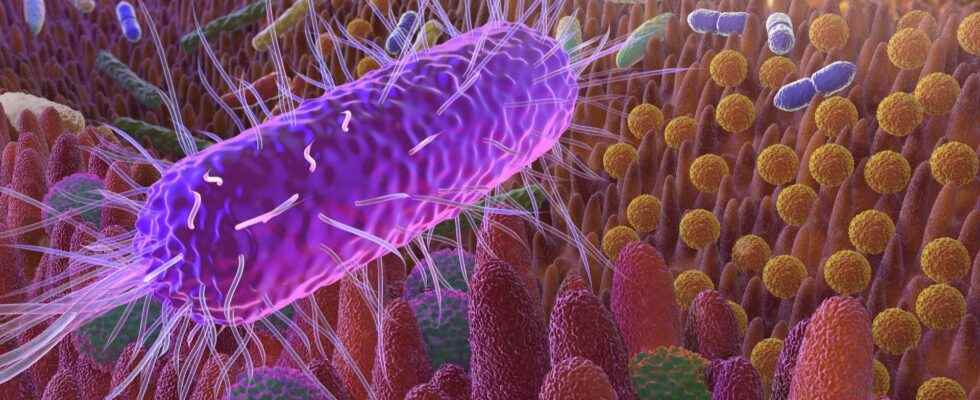Excess sugar in our diet contributes to an imbalance of the intestinal microbiota, which is essential for preventing metabolic diseases such as diabetes or obesity. It is the complex interaction between food, the microbiota and the immune system that a new study highlights.
You will also be interested
[EN VIDÉO] Interview: the intestinal microbiota, an essential ally of the immune system The intestinal microbiota includes all the microbes present in our intestine. It allows a good functioning as well as a certain protection of the colon. Gerard Eberl, head of the Micro-environment & Immunity unit at the Institut Pasteur, tells us more during this interview.
the diet western, often high in fats and sugars, can lead to the development of diseases such as diabetes type 2, theobesity where the metabolic syndrome (weight gain, insulin resistanceintolerance to glucose…). However, we do not know what the mechanisms are at play and how the microbiota intestinal can regulate them.
American researchers have studied the effects of this high-calorie diet on the intestinal microbiota of mice. The results of the study show that the animals developed the metabolic syndrome after just four weeks on this diet. In addition, their microbiota has been largely altered, with a sharp decrease in the number of filamentous bacteria.
Protection against metabolic diseases comes mainly from the microbiota
Other experiments have shown that Th17 immune cells, induced by filamentous bacteria, protect the intestine from metabolic diseases by regulating theabsorption lipids. ” the sugar eliminates filamentous bacteria, and the protective Th17 cells disappear accordingly “, explains in a statement Ivalyo Ivanov, one of the authors of the study.
” When we gave mice a sugar-free, high-fat diet, they retained intestinal Th17 cells and were completely protected against the development of obesity and pre-diabetes, while eating the same number of calories “, he continues.
Finally, the researchers point out that, while diet is important, the real protection comes from Th17 cells induced by bacteria in the microbiota. When the mice were devoid of filamentous bacteria, removing the sugar did not have the expected beneficial effect. Thus, in the context of dietary interventions, advocating probiotics in addition to a diet may be necessary.
Interested in what you just read?
